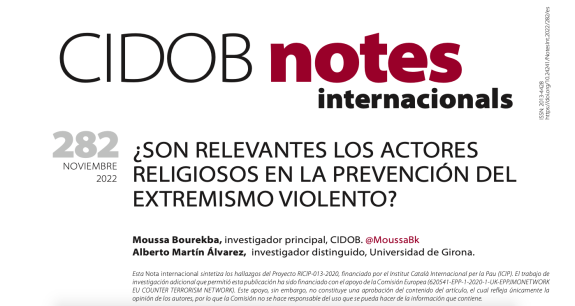Are religious actors relevant in preventing violent extremism?

In Europe, the thesis of a continuum between a rigorous practice of Islam and the jihadist Salafist ideology predominates in public discourse. In this way, the correlations that may exist between quietist Salafism and jihadism are used to justify the deployment of surveillance measures on communities labeled as Salafists.
However, the main findings obtained in the research that we present here on the Muslim communities of the towns of Reus (province of Tarragona) and Salt (province of Girona) question the use made of the Salafi label in the academic and police spheres. ; likewise, they reveal the role played by the actors of the Muslim community in religious and social matters.
From this perspective, it is observed how religious actors could assume a relevant role in the prevention of violent extremism (VEP) strategies, not only as potential informers as up to now, but also as true agents of implementation of these strategies.